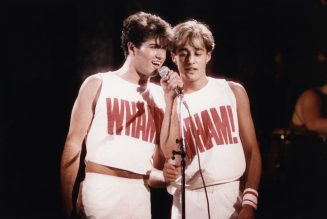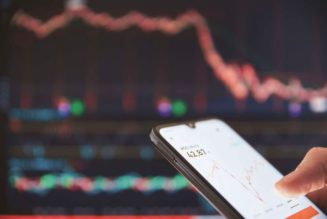Technology
Climate tech funder trains eyes on women founders
Monday May 01 2023
Lyndsay Handler co-founder and managing partner of Delta40 poses for a picture during the interview at her offices on March 29, 2023. PHOTO | FRANCIS NDERITU | NMG
In her professional life, Lyndsay Handler is proudest about two things: the ventures she has built and the communities she has nurtured.
The co-founder and managing partner of Delta40 came to East Africa in 2003 and for 20 years, she has been building businesses in clean energy, agriculture, and fintech.
Delta40, where she has been a managing partner since 2022, is a venture studio investing in ‘‘disruptive innovations’’ by African founders to boost incomes and tackle climate change in Africa.
Its main areas of investment are agriculture, energy, and mobility in what is broadly known as climate tech. The company hopes to avail $30 million (Sh3.9 billion) in the next five years, targeting mostly female founders.
‘‘The first ventures we funded as a studio were agricultural-based. Most Africans rely on agriculture for their food security and income. By increasing their incomes, they are able to invest in other areas, which enhances their resilience.’’
The studio is looking at new seed treatments that boost germination rates and are more drought-tolerant in low-rainfall environments. ‘‘With the right technology, the cost of these treatments is low.’’
She describes East Africans as some of the most entrepreneurial people in the world contrary to popular belief. ‘‘The SME market in Africa is a thriving market if you found the right products.’’
Lyndsay cites expertise and a ready market for this. ‘‘There is a lot of talent among young people who are hungry to learn and to have an impact. The market here is quiet and less crowded, unlike the US market that is noisy and with a lot of products on sale.’’
‘‘There is a real opportunity if you can build the right and life-changing product. It can also reach tens of millions of people,’’ she adds.
But why climate tech?
Studies show that while Africa contributes only three percent to the total global carbon emissions, more than 60 percent of household incomes on the continent will be negatively impacted by the effects of climate change in the coming years.
These effects are already being felt, with protracted droughts and floods. ‘‘The only way to boost resilience [against these disruptions] is to increase household incomes and the quality of life,’’ she notes.
Delta40 is also working to accelerate the adoption of electric mobility in mass transport.
On the uptake of these technologies, Lyndsay says: ‘‘If a customer is not willing to pay money for that product, you should not even bother to make it. A venture would not succeed if the customer does not like it.’’
‘‘The founders of the businesses we work with must demonstrate what problems they are solving and what value they are giving to consumers,’’ she adds.
To build and scale ventures across Africa, she says, more investment, especially for early-stage businesses, is needed.
‘‘You may have a few years where you are investing in new markets. It may not be profitable year-in year out. The goal is to build a sustainable venture. It is a fine balance.’’
At the heart of this growth are women entrepreneurs, who she says are not receiving enough venture capital.
In 2022, for instance, only four (4) percent of the $7 billion (Sh924 billion) venture capital went to businesses with women CEOs, according to estimates by African Venture Capital and Private Equity Association (AVCA).
‘‘This is a huge missed opportunity in women’s unique leadership, perspectives, skill-sets and ideas when building ventures and ecosystems in climate innovations,’’ she says.
Consequently, women-led ventures will account for 40 percent of businesses that Delta40 will fund in the next five years, she reveals.
‘‘We are 33 percent of female founders. We see it as a competitive advantage. We are calling on female founders to connect.’’
On what they look out for before funding a business, Lyndsay says the venture must be trying to solve ‘‘a big problem in a large market’’, noting that this allows it to scale. ‘
‘The venture must also be able to price its solutions in an affordable way,’’ she explains.
‘‘Does the business have the right team? Does the team have the capacity to move their idea to a product? Do they have experience in the area?’’
To her, consumer feedback is critical in every design decision made along the journey of a product.
‘‘As we think about climate innovations in Africa, we must think about the needs of the real customers. At the very minimum, the solutions we create must help people to adapt to climate change,’’ she says, insisting on the need for the development of products that promote both mitigation and adaptation to climate change ‘‘for a just climate transition.’’
Read: Treasury set to establish climate finance bank
Raising the ‘‘right capital’’, she notes, remains the biggest challenge for early-stage ventures in Africa.
‘‘There is a lot of difficulty in raising equity. It takes a few years to develop this, which requires a lot of patience.’’
Lyndsay, who comes from a heavily entrepreneurial family, says more global investors coming to Africa, though, will make it easier for founders to raise seed capital for their businesses.
She adds that tighter regulations and more government support is necessary for tech start-ups to weather the unpredictability of markets.
While her mother, father and grandfather ran ventures in the US, to her, East Africa was irresistible.
‘‘There are entrepreneurial opportunities everywhere. But East Africa is one of the most exciting places to build especially technologies today.’’
In the early 2000s, she built Fenix International, then headquartered in Uganda, with the goal of providing clean and affordable energy and financial services to the last mile.
The company served Uganda, Kenya, Zambia, Mozambique, Ivory Coast, and South Africa. ‘‘We built the company from an idea to an enterprise in six countries and took it through an acquisition.’’
In 2010, after attaining one million users across Africa, French energy multinational Engie acquired the company. ‘‘They wanted to expand their footprint in Africa,’’ she recounts.
For most of her adult life, Lyndsay has been building not just businesses but communities as well. In the last 10 years, she has built women’s leadership groups, mainly composed of between five and 10 female CEOs, founders, and doctors.
‘‘We have regular dinners and workshops to support ourselves, brainstorm challenges and celebrate our wins as leaders and mothers,’’ she says and attributes her success as a female chief executive to these groups.
This passion, though, has grown in the two decades she has lived in East Africa. ‘‘America is a very individualistic society. I love how communal-oriented people are here. Working and living here has taught me the power of community.’’
To her, entrepreneurs have no choice but to build communities and strong teams with world-class talent. Founders must also use innovation to bring down the cost of delivering products and services.
‘‘Individuals can build products and companies. To build long-lasting brands that deliver innovations to tens of millions of people, however, you need a great team and a great community around you.’’
‘‘We do not need novel technologies but we need to utilise the available technology to bring down the cost of hardware and the cost of business operations to deliver affordable solutions to the last mile,’’ she notes.
By selling shares to its 150 employees, Finex International allowed them to appreciate how to cut costs, to create better products and to attain profitability, she recalls on the importance of community ownership of a business.
‘‘We became more of a family than a business, which made us attractive for acquisition,’’ she says and notes that leaders can build communities within their companies for more success.
She observes that the world has an incredible amount of knowledge in data, that can be leveraged to create smarter products and business models that serve customers better.
‘‘The more we make data a competitive advantage in Africa, the more we can address multiple challenges and build profitable businesses in the process.’’
Does she think businesses in Kenya are modelled to be sustainable? Lyndsay admits that there are times when venture capital elsewhere has invested in businesses with a grow-it-at-all-cost mentality.
Read: Climate finance remains key hurdle
African entrepreneurs, though, have been more ‘‘thoughtful’’ by investing every dollar more carefully, she says. According to her, they are also relatively more well-positioned to invest in sustainable ventures than in other parts of the world.
‘‘This is [probably] because they do not have access to as much capital as you do elsewhere in the world. Many founders here invest in disciplined, more sustainable ventures. The ones that are growing at all costs are probably the exception.’’
Whereas Delta40 has a bias for energy, mobility and agricultural ventures, the company also invests in fintech that ‘‘facilitates the deployment’’ of the three.
‘‘If you are looking to invest, you have to be open-minded about other ways of achieving emission targets,’’ Lyndsay notes but admits that sector-focused funds perform better than generalist funds.
To her, East Africa is home more than any other place she has lived in. ‘‘My children, 11 and nine, were born and have grown up here. This is a wonderful place to raise children.’’
Lyndsay is also a sportswoman to the core. She has represented the US national luge team and played competitive soccer, ultimate Frisbee and mountain biking.
The adventure sports enthusiast did not go to school full-time owing to sporting tours. She says sports shaped her business personality.
‘‘We tend to think of sports as a distraction, but it is one of the greatest ways to build discipline and leadership,’’ she says.
‘‘Hiking Mount Kenya is one of the most beautiful experiences I have had in Kenya,’’ she adds.
She lives with her family on a large farm in Tigoni in Kiambu County, from where she commutes to work.
A few years ago, Lyndsay put up a home along River Nile in Uganda, complete with cottages where she hosts her family, friends and entrepreneurs annually.
‘‘I also organise a kids camp at home. The Wild Child is a platform to allow children to appreciate nature and community service. They also get to network and have fun,’’ she says.









